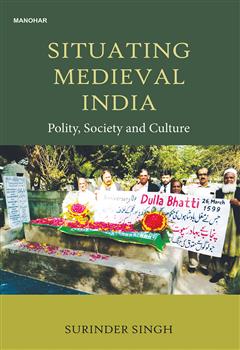Situating Medieval India: Polity, Society and Culture
Availability :
In Stock
₹ 1,576.05
M.R.P.:₹ 1995
You
Save: ₹418.95 (21.00% OFF)
(Inclusive
of all taxes)
Delivery:
₹ 30.00 Delivery charge
Author:
Surinder Singh
Publisher:
Manohar Publishers
ISBN-13:
9789394262775
Publishing Year:
January 2023
No. of Pages:
388
Weight:
800 g
Language:
English
Book Binding:
Hardcover











